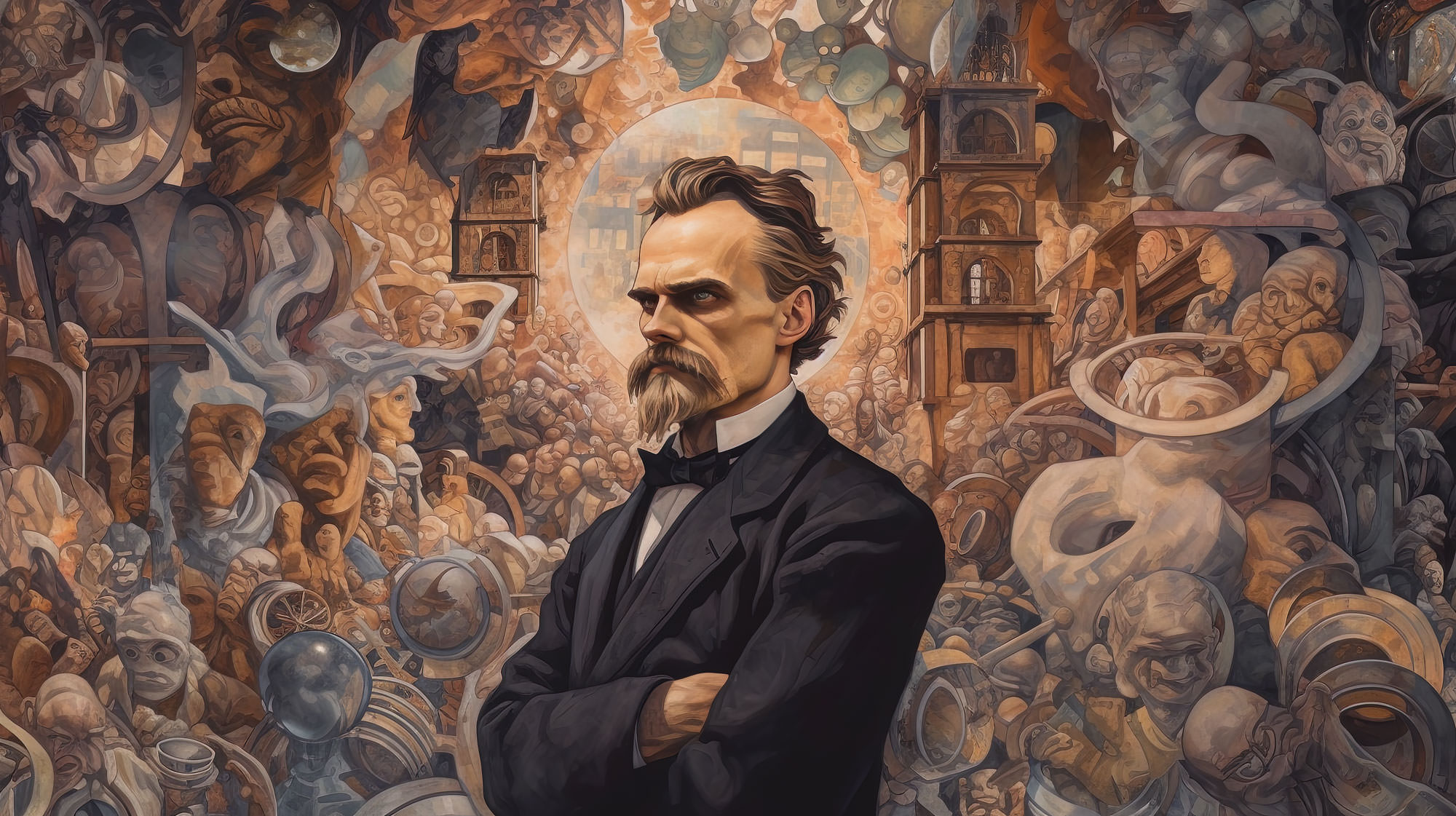
Friedrich Nietzsche (1844–1900) was a German philosopher, philologist, and cultural critic who is considered one of the most influential modern thinkers. He is known for his radical critiques of traditional European morality and religion, as well as his original, provocative ideas on topics ranging from metaphysics and epistemology to aesthetics, cultural theory, and psychology.
Nietzsche’s contributions to philosophy are extensive and complex, but some key concepts include his ideas on the “will to power,” “eternal recurrence,” “master and slave morality,” and the “death of God.” He also coined the term “Übermensch,” often translated as “overman” or “superman,” which refers to a future type of human who could arise once traditional religious and moral systems have been discarded.
The “will to power” is a fundamental concept in Nietzsche’s philosophy, suggesting that all living beings are motivated by a fundamental drive to assert their own power and dominance.
The concept of “eternal recurrence” is Nietzsche’s hypothetical idea that all events in the universe repeat themselves infinitely.
His idea of “master and slave morality” posits that there are two fundamental types of morality: a “master morality” that arises from strength and a “slave morality” that arises from weakness. He argued that the traditional Christian morality prevalent in Europe in his time was a form of slave morality.
The “death of God” is a phrase Nietzsche uses to express the idea that the Enlightenment had “killed” the Christian God, leading to a potential crisis in Western culture, morality, and values.
The “Übermensch” is a concept Nietzsche uses to explore the potential for human advancement in the absence of traditional religious and moral systems. He describes this figure as one who has overcome traditional human limitations and who creates his own values.
Nietzsche’s works, including “Thus Spoke Zarathustra,” “Beyond Good and Evil,” and “On the Genealogy of Morals,” are regarded as deeply influential in a wide range of academic fields, and his ideas continue to inspire debate and discussion. His provocative style and challenging ideas have made him a foundational figure in existentialism, postmodernism, and a host of other philosophical movements.
Here are a handful of Nietzsche’s best quotes with AI art generated by using the quote as a prompt:
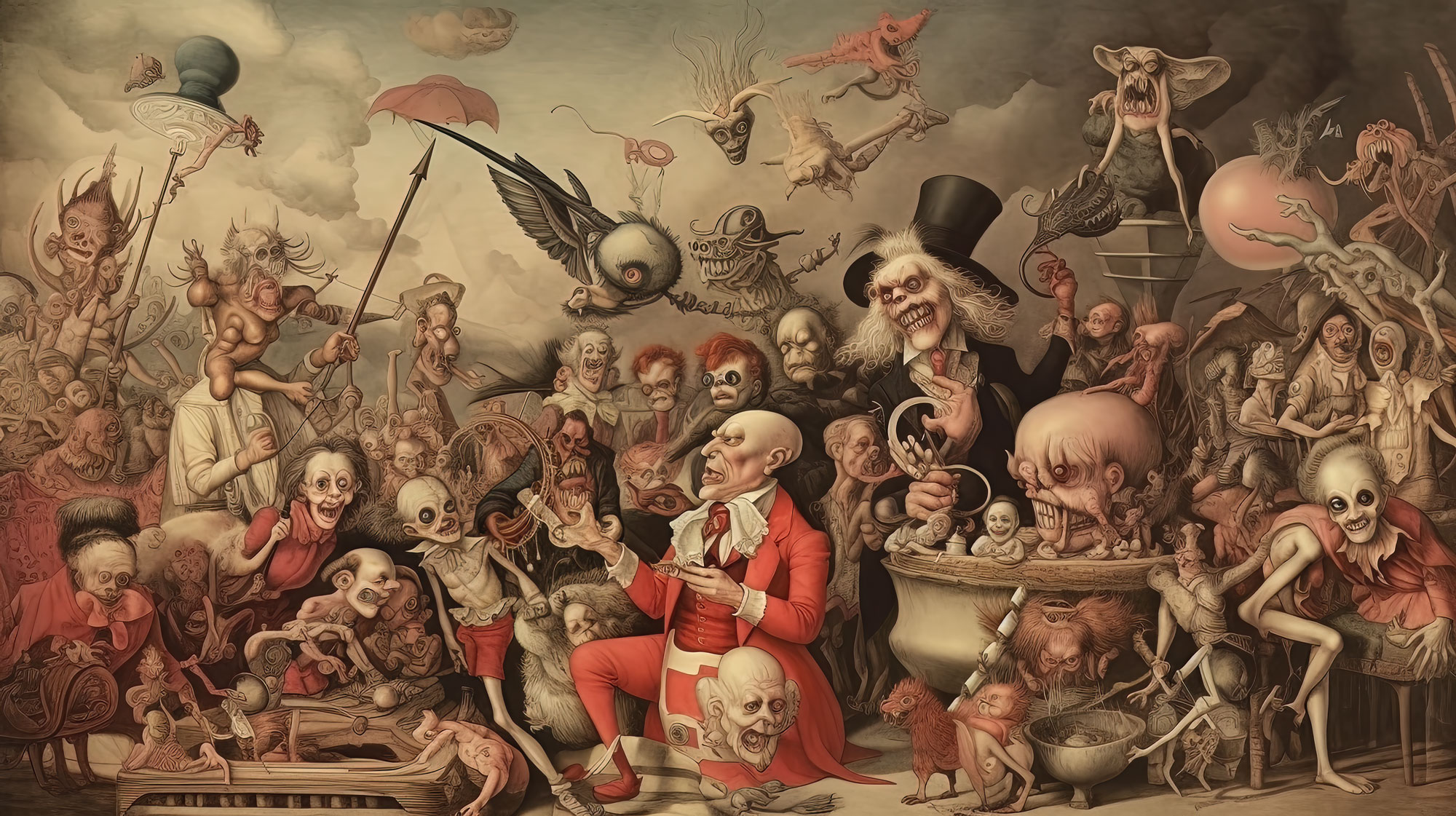
“In individuals, insanity is rare; but in groups, parties, nations and epochs, it is the rule.” – Friedrich Nietzsche
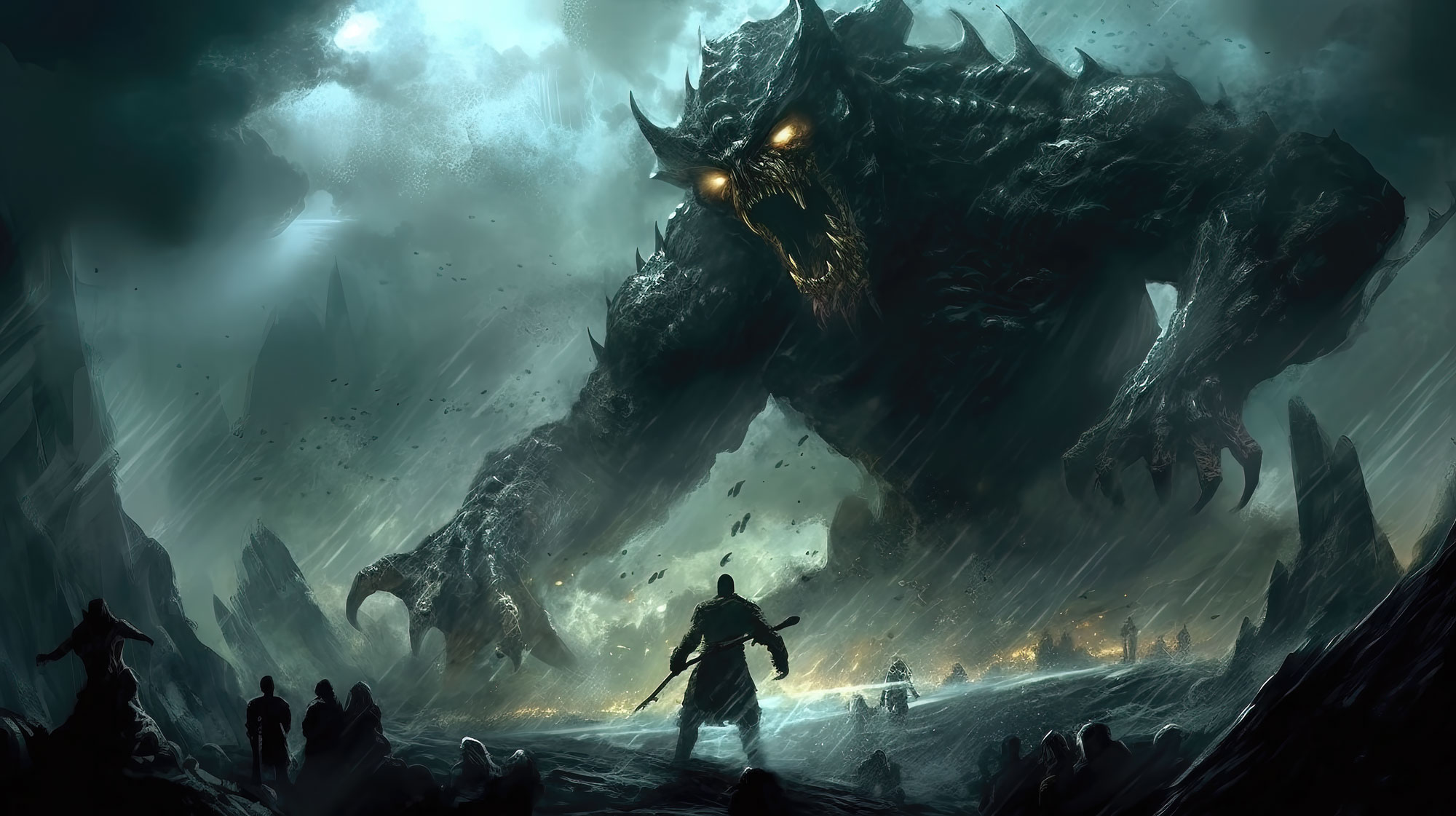
“Whoever fights monsters should see to it that in the process he does not become a monster. And if you gaze long enough into an abyss, the abyss will gaze back into you.” – Friedrich Nietzsche
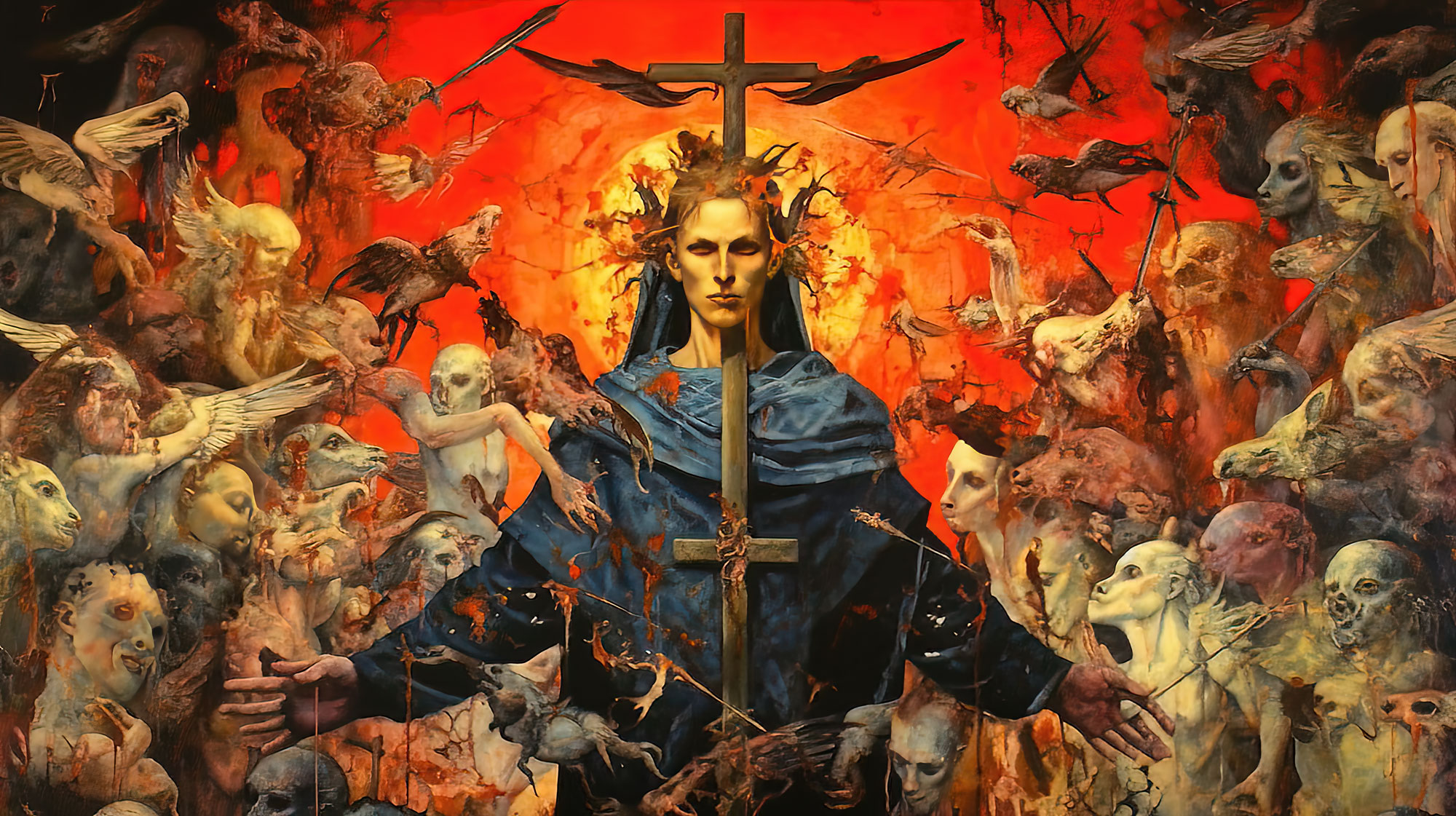
“God is dead. God remains dead. And we have killed him. How shall we comfort ourselves, the murderers of all murderers? What was holiest and mightiest of all that the world has yet owned has bled to death under our knives: who will wipe this blood off us? What water is there for us to clean ourselves? What festivals of atonement, what sacred games shall we have to invent? Is not the greatness of this deed too great for us? Must we ourselves not become gods simply to appear worthy of it?” – Friedrich Nietzsche
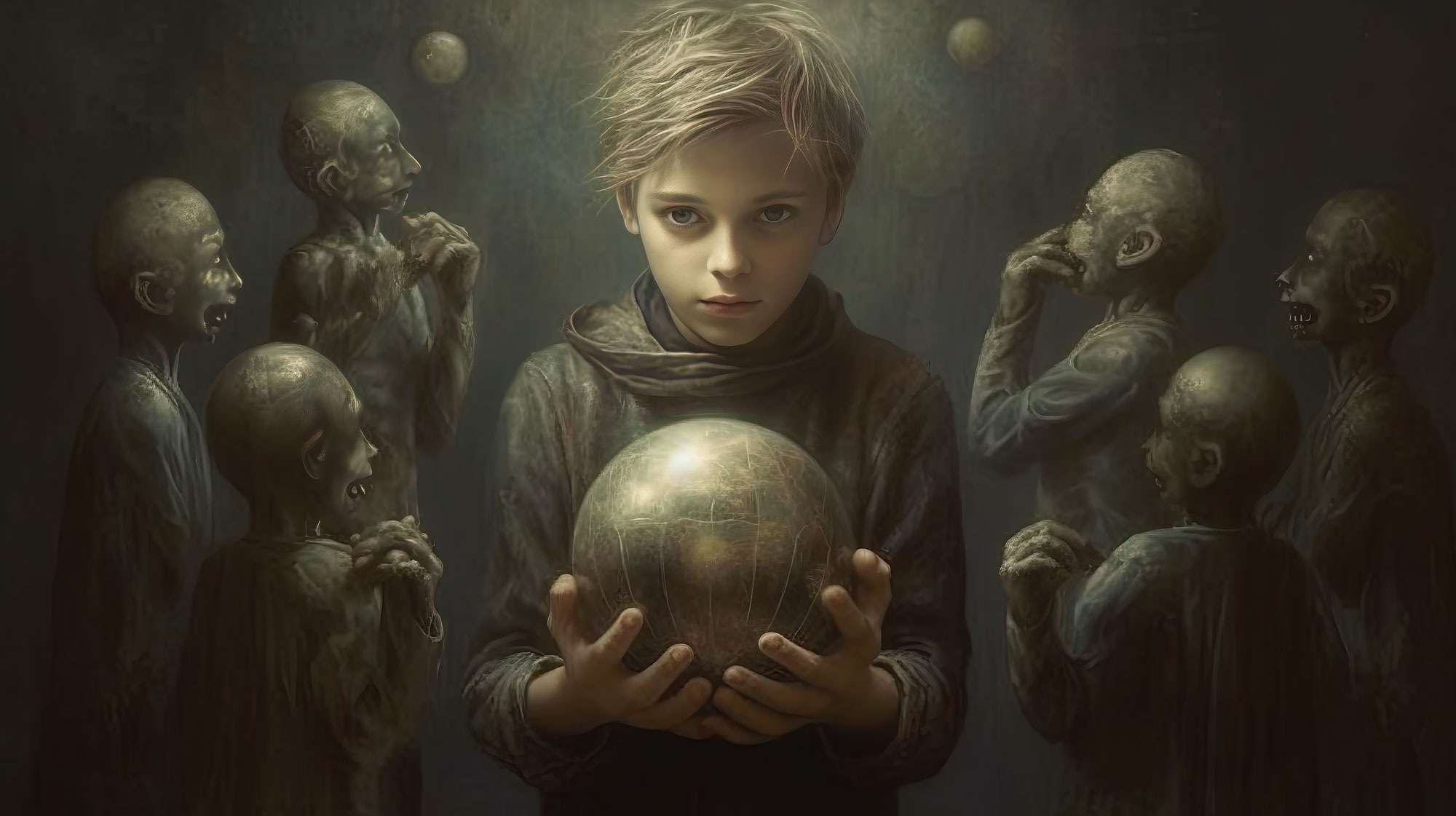
“The surest way to corrupt a youth is to instruct him to hold in higher esteem those who think alike than those who think differently.” – Friedrich Nietzsche
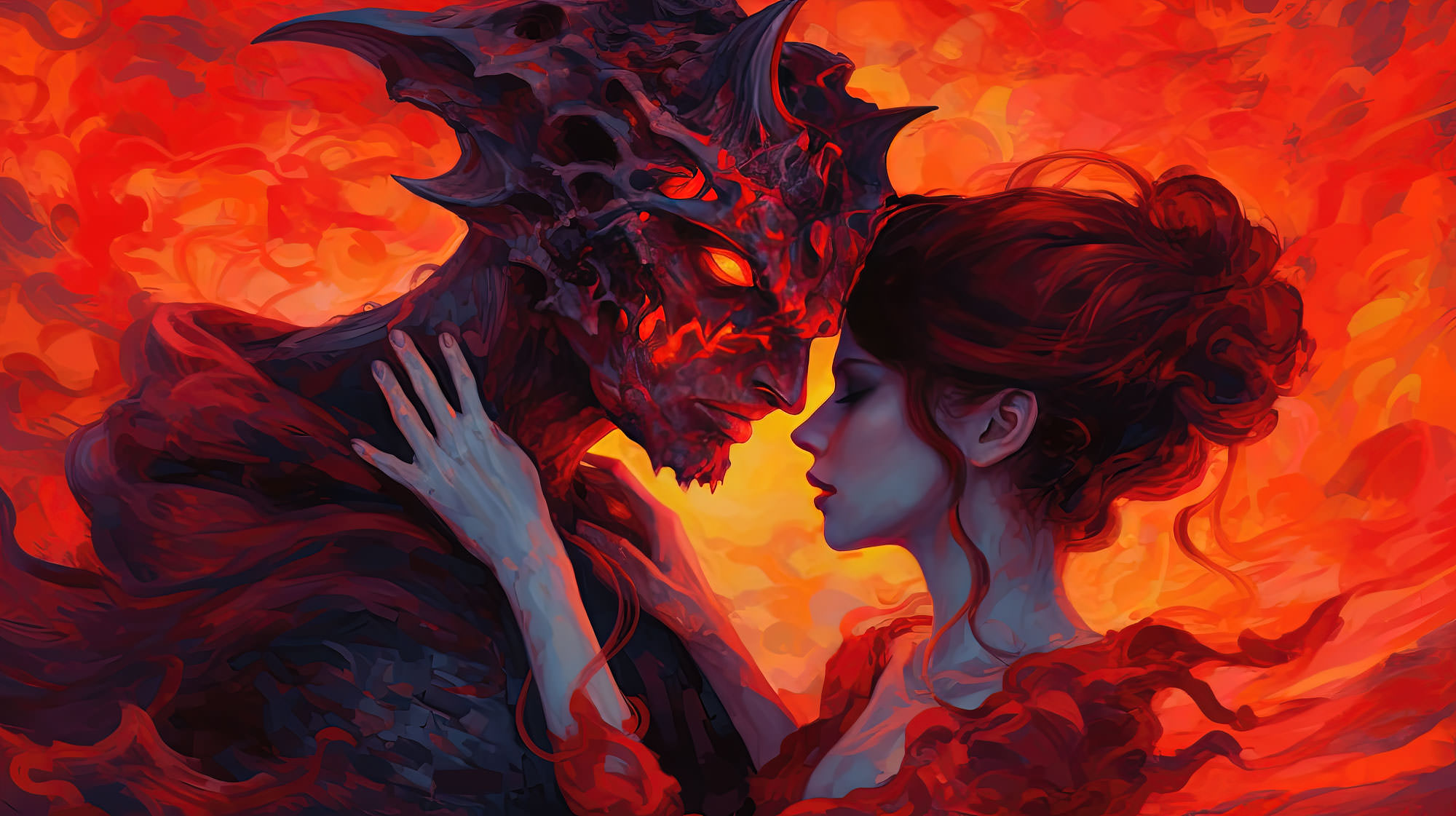
“There is always some madness in love. But there is also always some reason in madness.” – Friedrich Nietzsche

“Philosophy, as I have understood and lived it, is a voluntary living in ice and high mountains: a seeking after everything strange and questionable in existence, all that has been excommunicated by morality.” – Friedrich Nietzsche
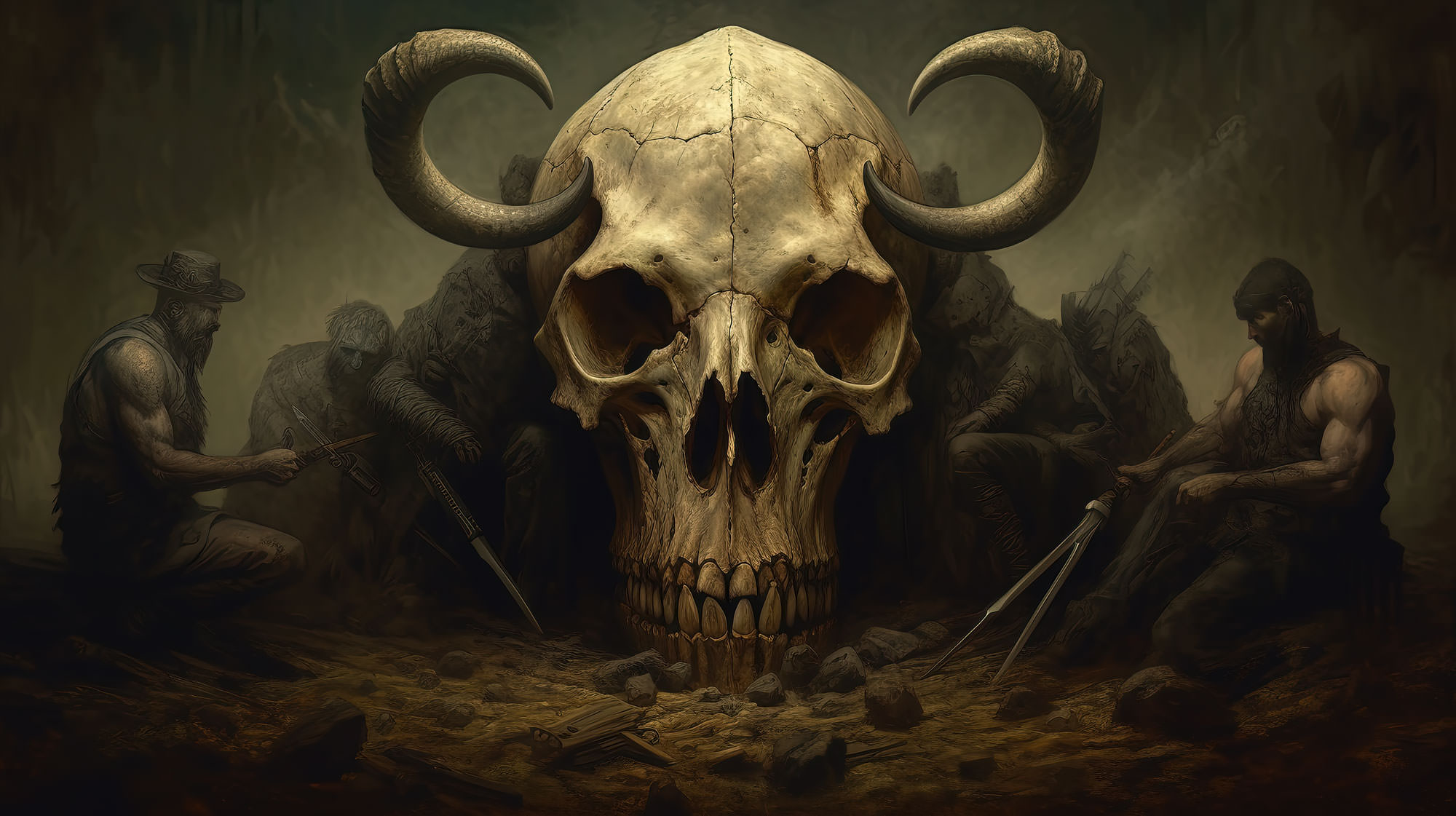
“That which does not kill us makes us stronger.” – Friedrich Nietzsche
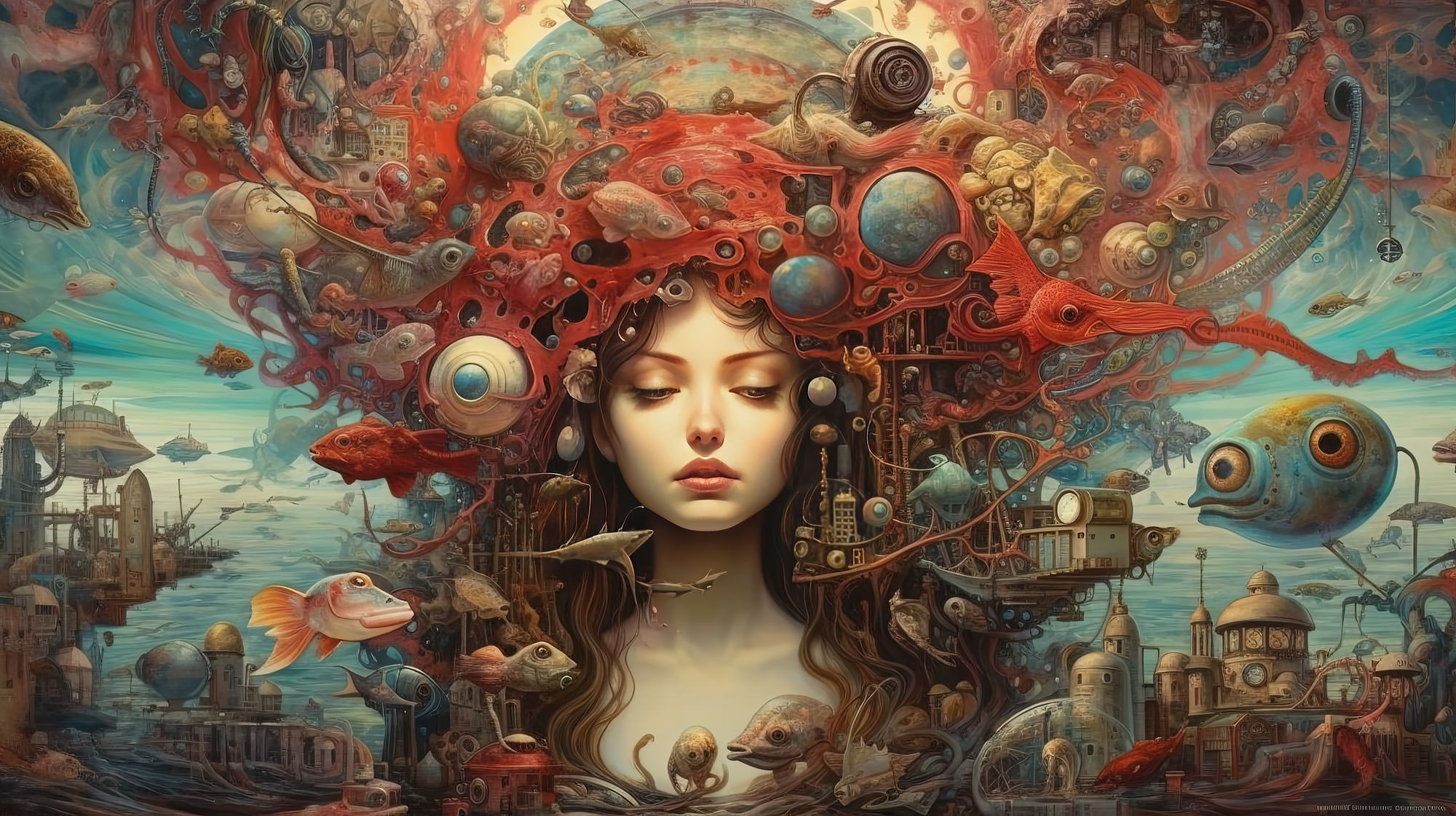
“We have art so that we shall not die of reality.” – Friedrich Nietzsche
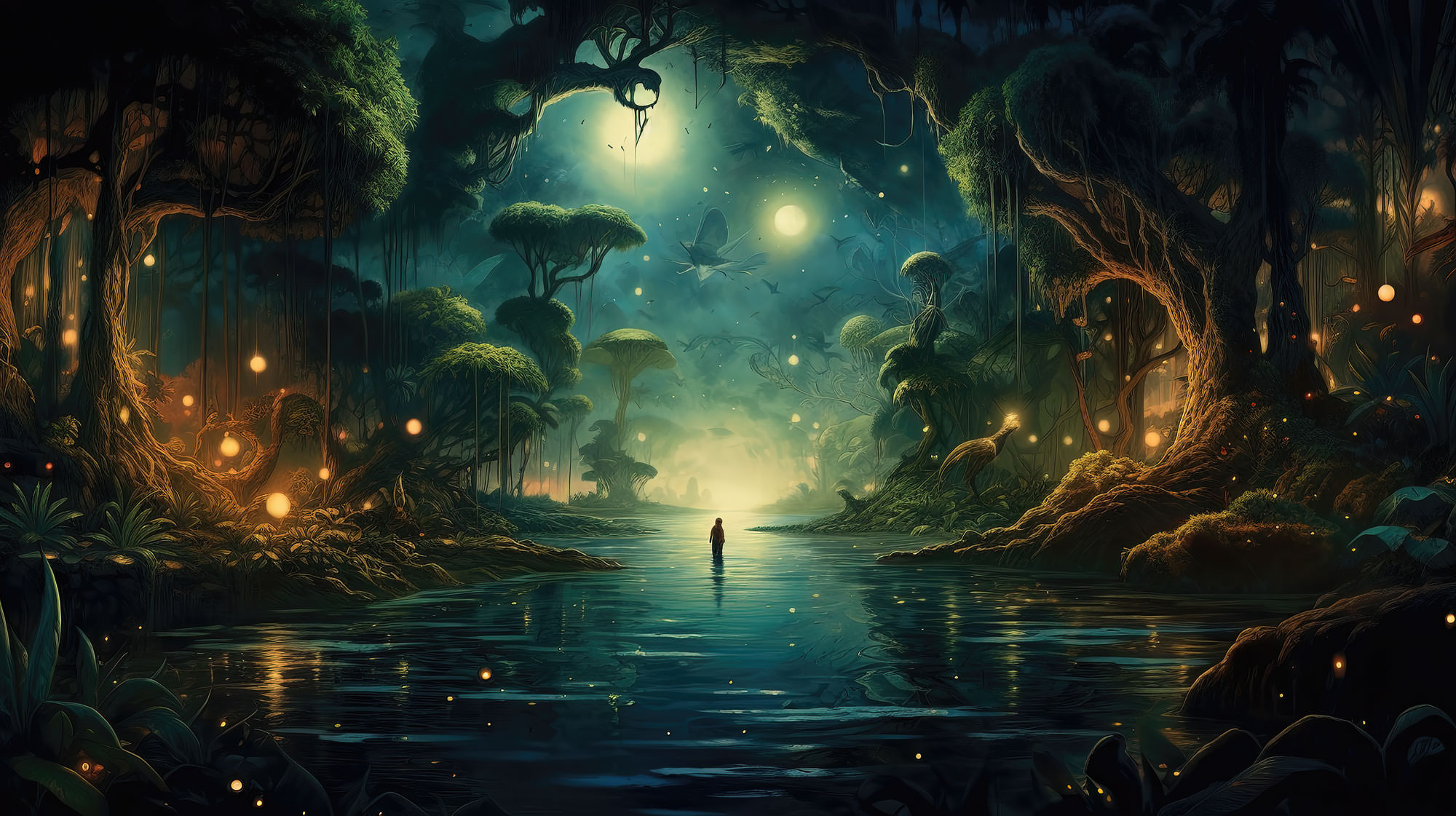
“I was in darkness, but I took three steps and found myself in paradise. The first step was a good thought, the second, a good word; and the third, a good deed.” – Friedrich Nietzsche
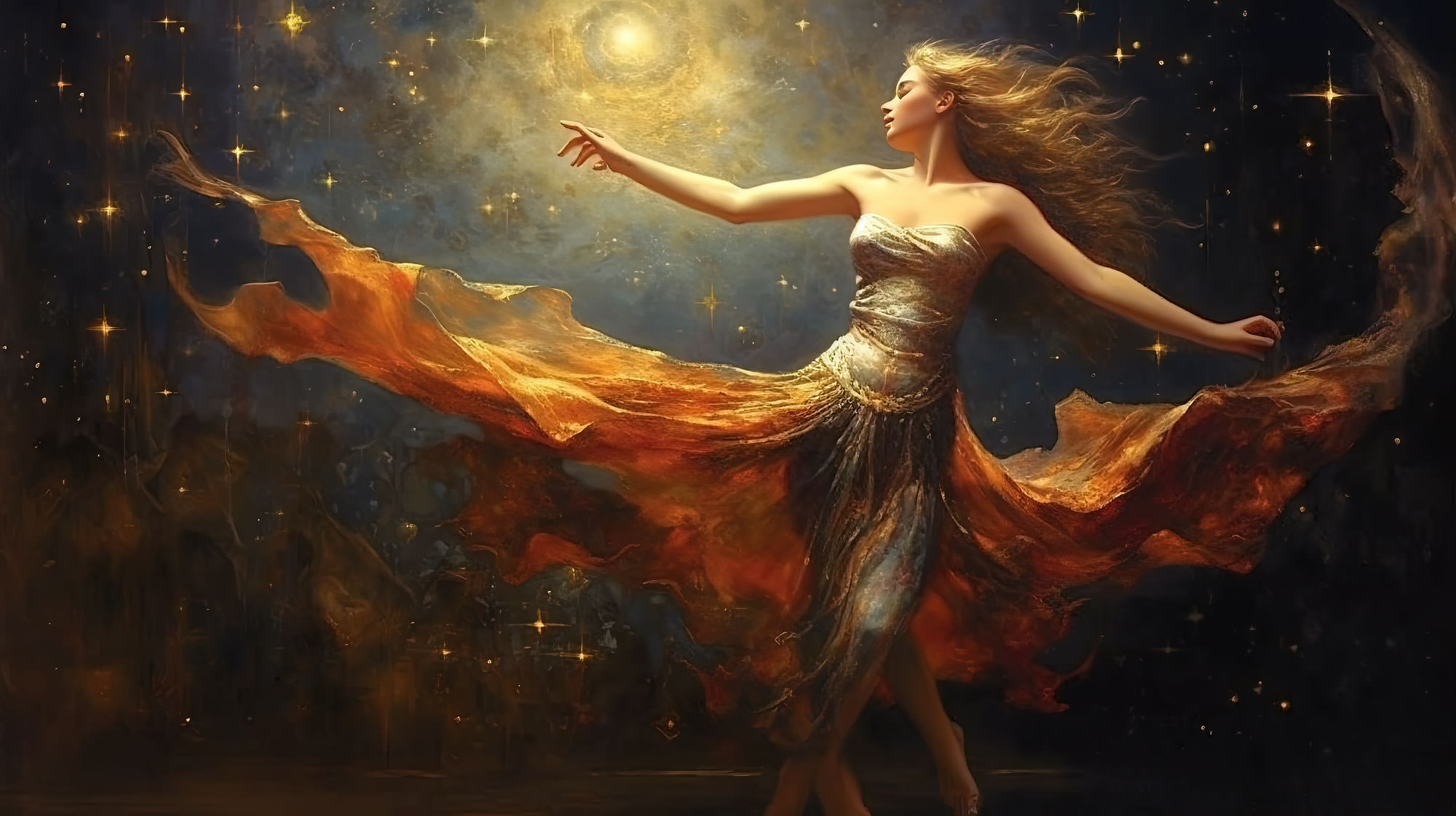
“One must still have chaos in oneself to be able to give birth to a dancing star.” – Friedrich Nietzsche

“I am a forest, and a night of dark trees: but he who is not afraid of my darkness, will find banks full of roses under my cypresses.” – Friedrich Nietzsche
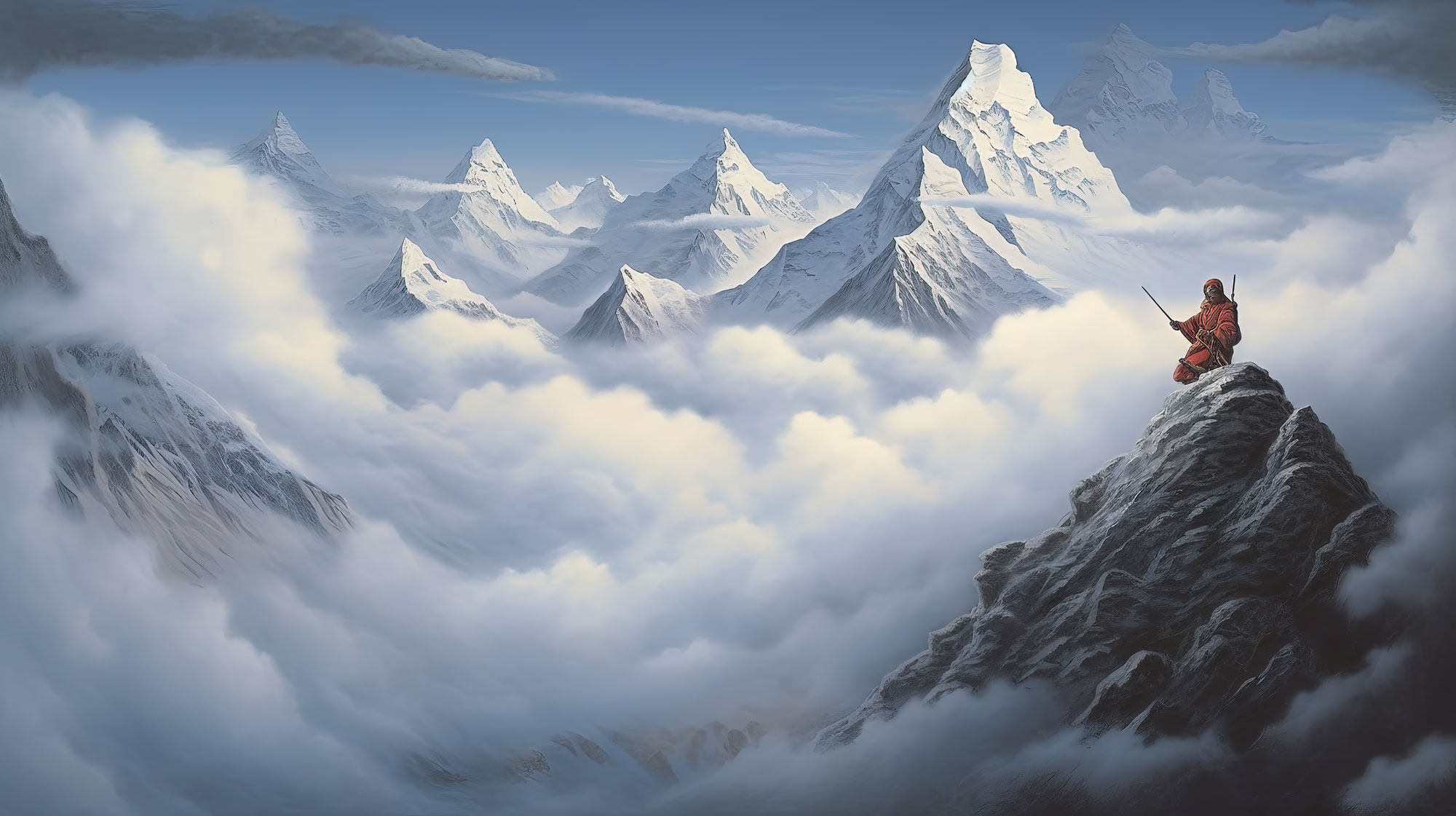
“He who climbs upon the highest mountains laughs at all tragedies, real or imaginary.” – Friedrich Nietzsche

“You must be ready to burn yourself in your own flame. How could you rise anew if you have not first become ashes?” – Friedrich Nietzsche
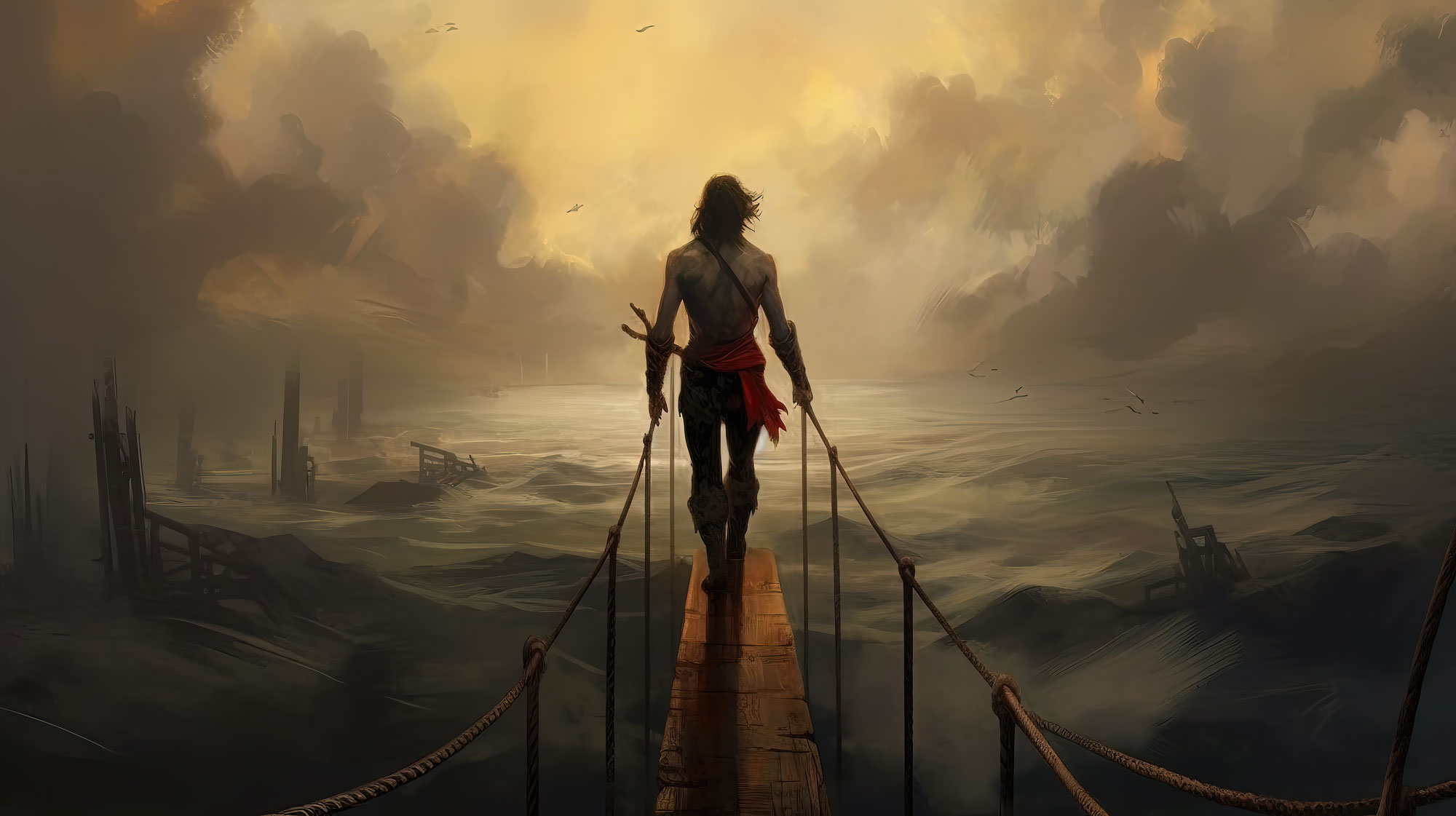
“Man is something that shall be overcome. Man is a rope, tied between beast and overman — a rope over an abyss. What is great in man is that he is a bridge and not an end.” – Friedrich Nietzsche